-
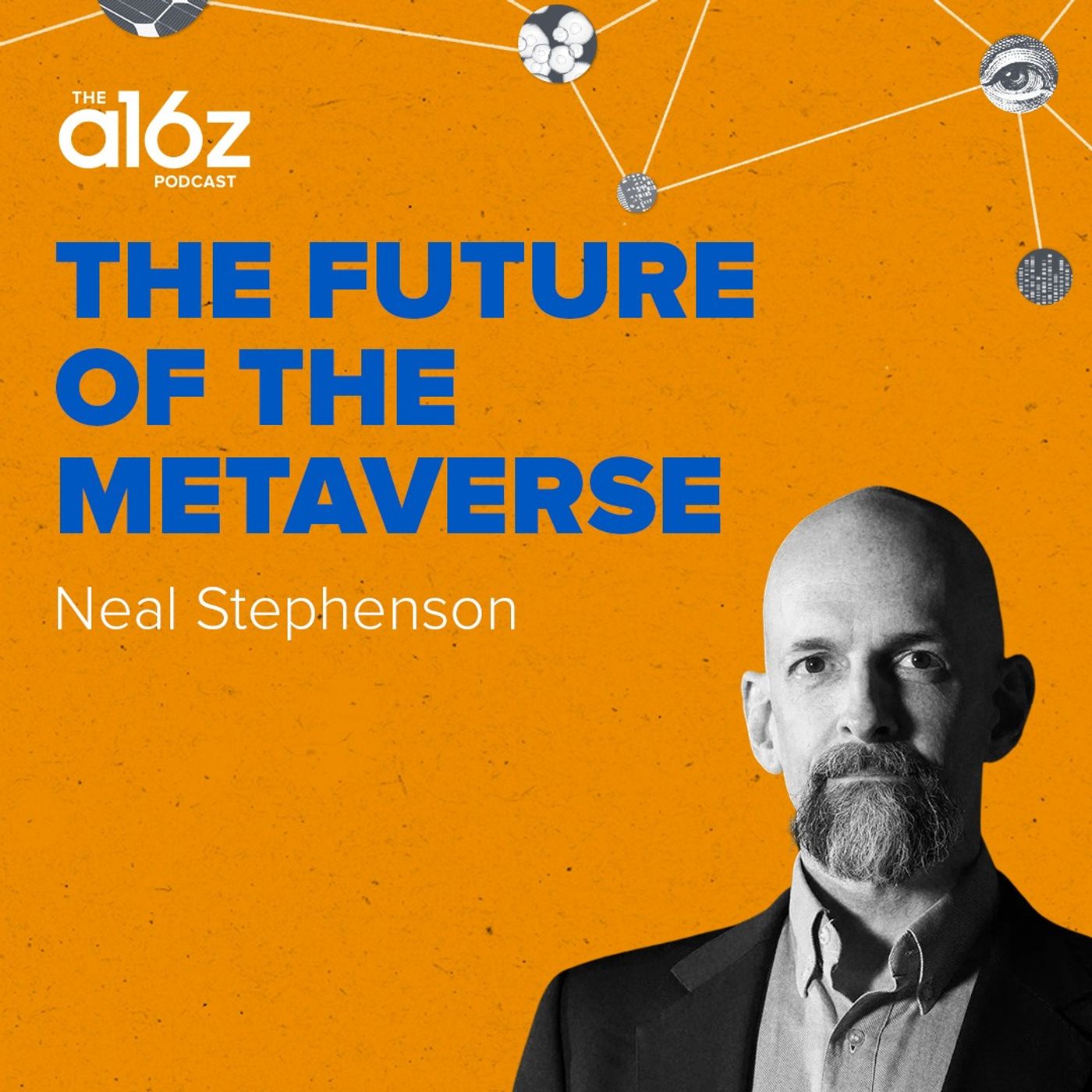 Neal Stephenson on The Future of the Metaverse
Neal Stephenson on The Future of the MetaverseFrom 🇺🇸 a16z Podcast, published at 2022-11-22 11:00
When Neal Stephenson coined “the metaverse” three decades ago, his book Snow Crash was found on the shelves of “science fiction”. While the book remains in that category, many of its concepts are now found in reality… Fast forward to 2022, where numerous companies are now building toward their version of the metaverse, including Neal himself – working on Lamina1 – a blockchain company oriented toward creators. While the present metaverses don’t perfectly mimic that from Stephenson’s early imagination, we get the unique opportunity to discuss the various design decisions that he’s making, but also the intersection between the metaverse and gaming, the involvement that AR/VR might play, the evolving role of IP, how artificial intelligence fits in, what he’s building and why, and where he gets all of his ideas from.
-
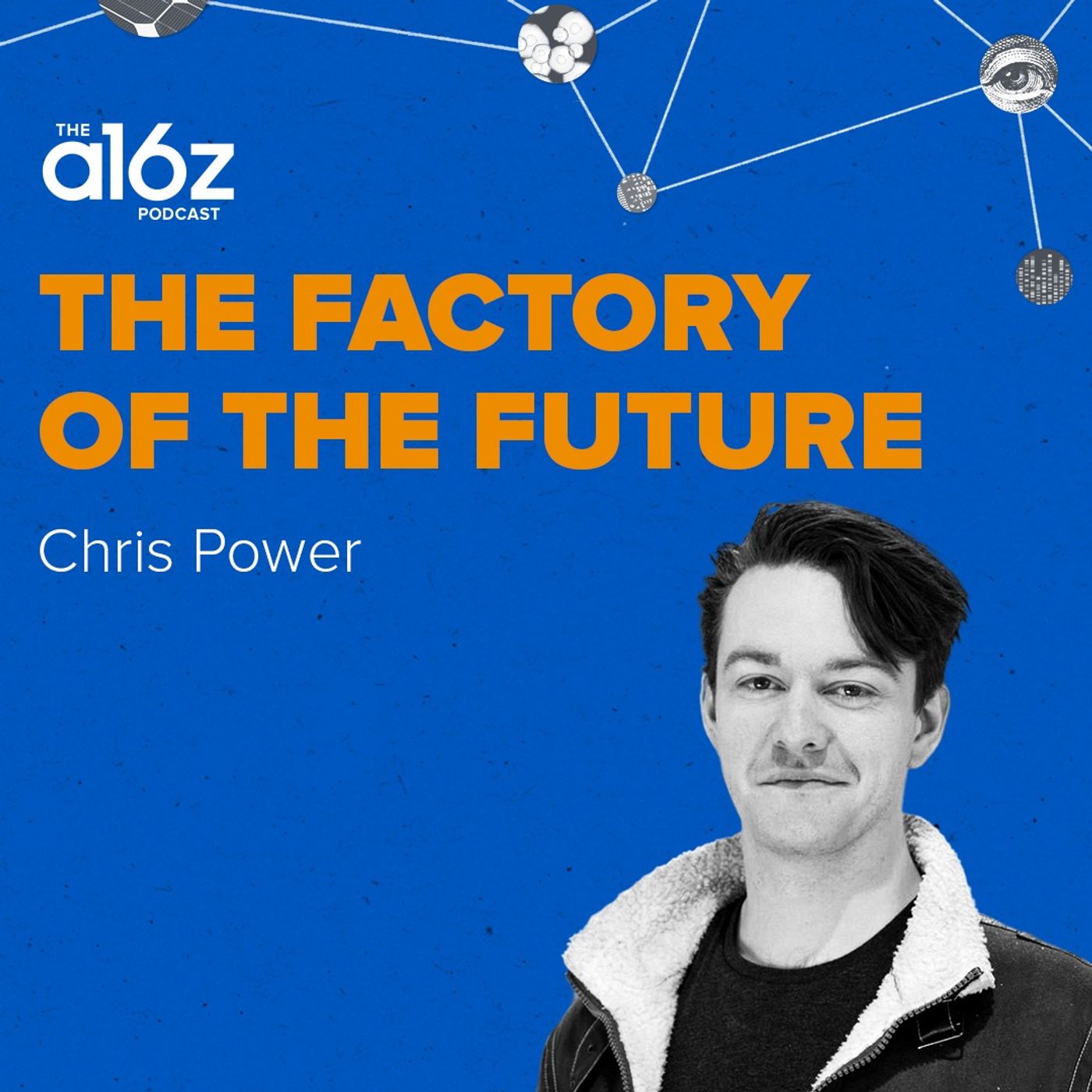 The Factory of the Future with Chris Power
The Factory of the Future with Chris PowerFrom 🇺🇸 a16z Podcast, published at 2022-11-17 11:00
Today, we have an episode with Chris Power, the founder and CEO of Hadrian. Hadrian is a company trying to build the most efficient factories on the planet. In this conversation, we’ll introduce the audience to advanced manufacturing, and expose them to the reality that it’s a remnant of the first space race. We also cover the challenge of manufacturing, the importance of visibility in complex systems, the killer app for space, how simplifying the world of atoms can be done through bits – and ultimately, what kind of experimentation that may unlock.
-
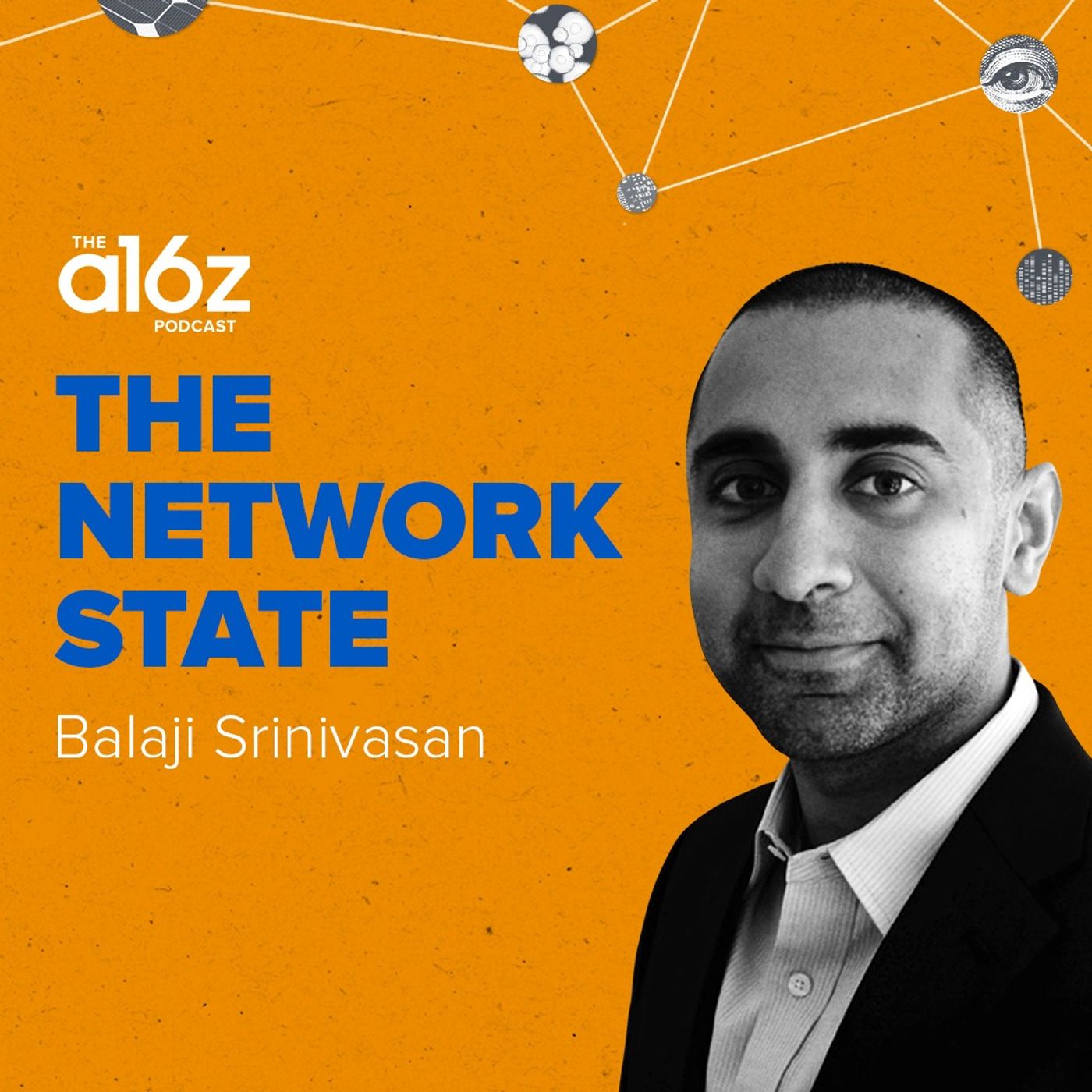 Balaji Srinivasan on The Network State
Balaji Srinivasan on The Network StateFrom 🇺🇸 a16z Podcast, published at 2022-11-15 11:00
In this episode, we’ll explore the concept of The Network State with Balaji Srinivasan. As the world becomes more digital, it also becomes more distributed. This is obvious on the individual level – how you order goods, the way you chat with friends, and the news you consume… all from a handheld computer. It’s also becoming more obvious at the company level. The pandemic shook the world into remote work and many companies have decided that maybe work can be done in ways they never imagined. But what about the state – whatever that means? Could the network rival the state? In this episode we’ll explore what a nation state even is and how it may be challenged by a new Leviathan: the network. We also cover the difference between a nation and a state, how constants become variables, the cloud continent, digital power, your identity stack, calibrating risk, polycentric law, cloud regulations, building fast with atoms, founding vs inheriting, the powerful vs the powerless, and just about everything in between.
-
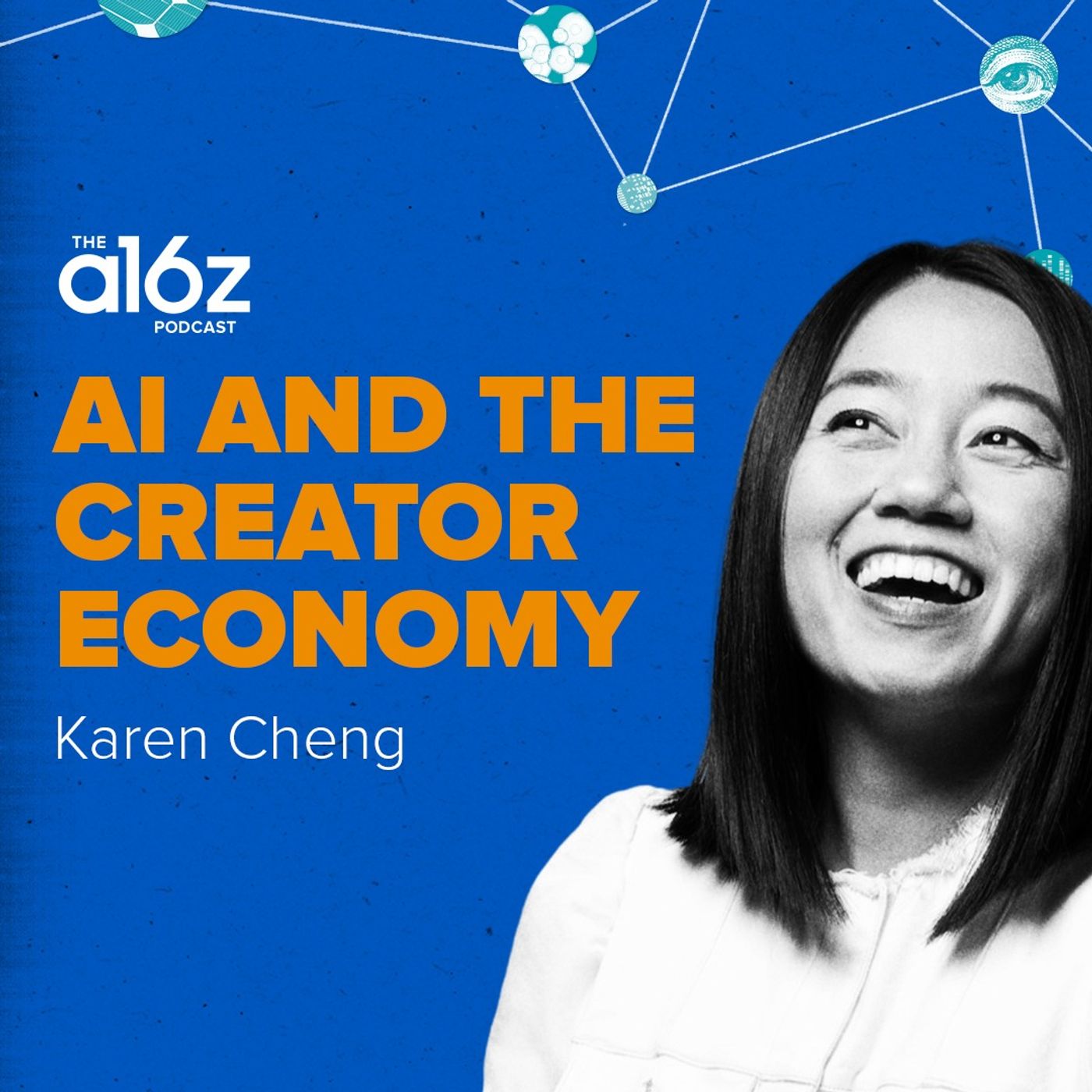 AI and the Creator Economy with Karen X Cheng
AI and the Creator Economy with Karen X ChengFrom 🇺🇸 a16z Podcast, published at 2022-11-09 11:00
Generative AI tools like DALL-E, Midjourney, and Stable Diffusion have taken the world by storm in recent months, wowing the masses with their uncanny ability to produce images via text prompts. In this interview, we’ll chat with Karen Cheng about how she’s leveraged these tools among others, with a focus on how this new paradigm is reshaping the creator landscape. You’ll get to hear the behind the scenes of many of her viral works, including a video of her becoming a lawnmower, her AI-generated Cosmo magazine cover, her DALL-E fashion show, her transforming iconic art into 3D museums to explore, and much, much more. By the end of this episode, listeners should have a better understanding of the new tools at their fingertips (literally!), how AI can indeed enhance the creative process, and the second-order effects of these innovations, like how creators are paid. Since we’re just at the beginning of the AI era, this is just the beginning of our coverage as well.
-
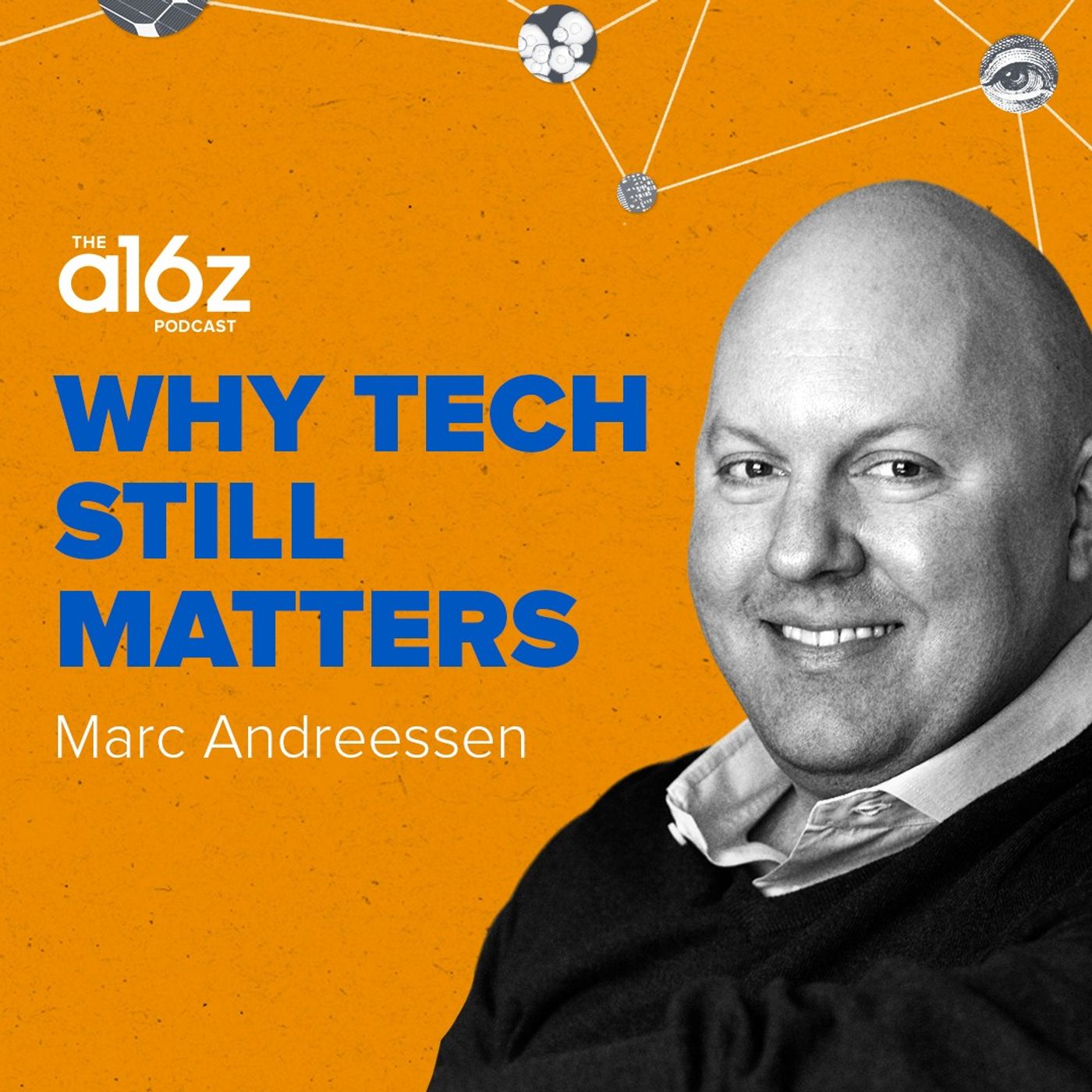 Why Technology Still Matters with Marc Andreessen
Why Technology Still Matters with Marc AndreessenFrom 🇺🇸 a16z Podcast, published at 2022-11-09 11:00
With much coverage of technology lined with pessimism, the a16z Podcast returns to highlight the bright side of technology, alongside the founders building it. But before featuring the solutions in progress, we wanted to explore why building the future is still so important. And who better to traverse this ground than a16z’s own cofounder Marc Andreessen, who has built and invested in the future time and time again, especially when it wasn't the obvious thing to do. Together with Marc, this episode explores technology through the lens of history – including the three stages of human psychology as we encounter new technologies, how that process often manifests in regulation, when to change your mind, the Cambrian explosion of opportunity coming from distributed work, the importance of founder-led companies, and perhaps most importantly, we examine why there's still much reason for optimism.
-
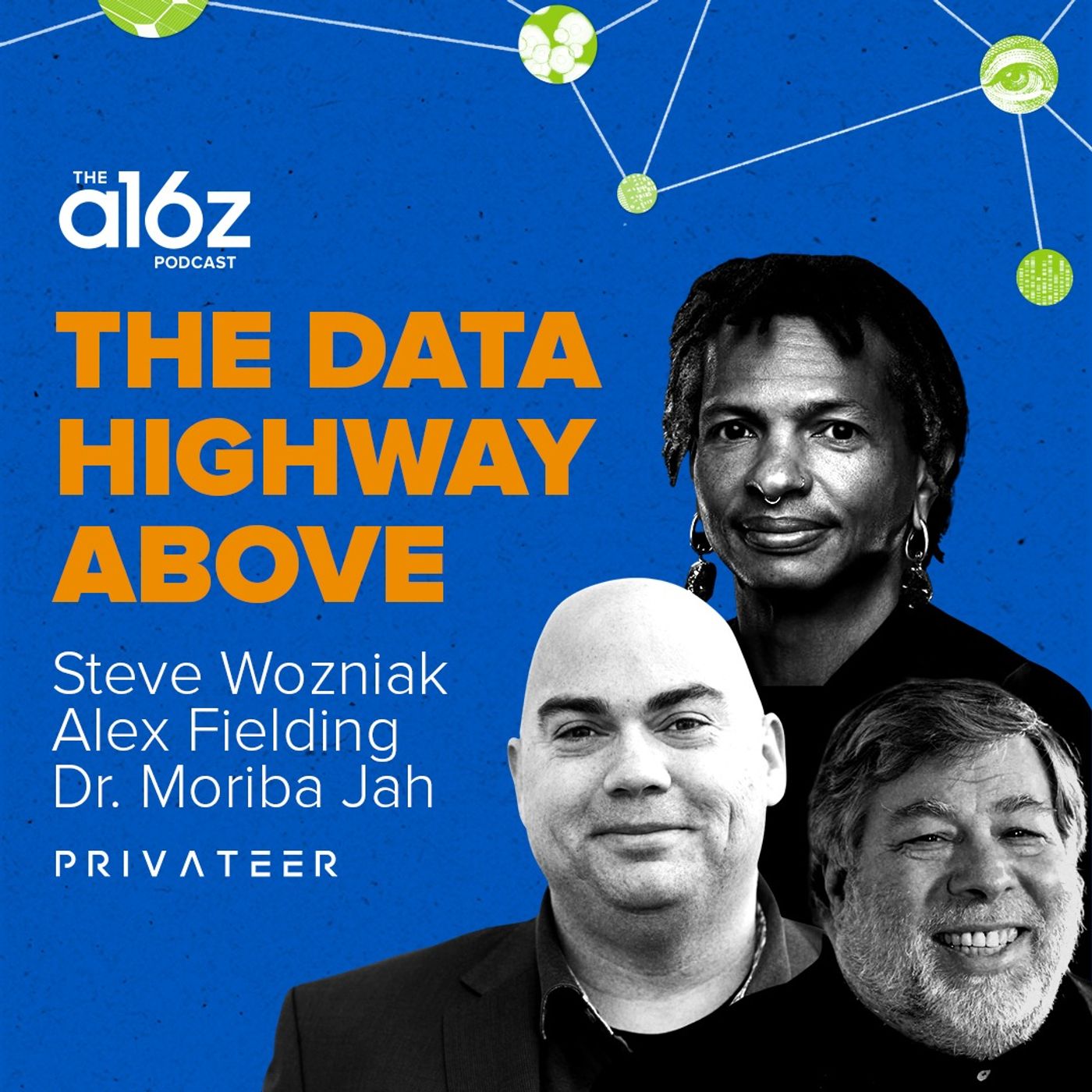 The Data Highway Above with Privateer’s Steve Wozniak, Alex Fielding, and Dr. Moriba Jah
The Data Highway Above with Privateer’s Steve Wozniak, Alex Fielding, and Dr. Moriba JahFrom 🇺🇸 a16z Podcast, published at 2022-11-09 11:00
Many people consider space to be the next frontier and equally an infinite horizon to explore. But the reality is that not all “space” is the same and there are strategic zones that don’t only matter up there – but down here on Earth. Lower Earth Orbit (LEO) is one of those regions – a zone filled with satellites that support life on Earth, from agriculture to climate to navigation to defense. Unfortunately, these live satellites are not alone in our space highways. LEO is getting increasingly clogged with space debris; we’re polluting our skies just like we’re polluting our land. In this episode, we have the pleasure of speaking with all three cofounders of Privateer – Steve Wozniak, Alex Fielding, and Dr. Moriba Jah, as they explore just how much junk is up there, how this challenge is expected to progress with time due to lower launch costs, and ultimately, what infrastructure is missing in this fragile ecosystem – from tracking to global treaties to a sharing economy of satellites. By the end of the episode, listeners should be more equipped to understand how our infrastructure in space vastly impacts life on Earth, how the preservation of this ecosystem is crucial, and how Privateer is providing the map to better understand and fix the issue.
-
 The a16z Podcast Returns
The a16z Podcast ReturnsFrom 🇺🇸 a16z Podcast, published at 2022-11-07 15:00
The long-standing (and chart-topping) a16z Podcast returns to cover the most important topics within the world of technology. Brought to you by the minds at Andreessen Horowitz (a16z) and hosted by Steph Smith, each episode goes beyond headlines, giving listeners insider access to the edge of innovation. Subscribe to be the first to receive upcoming episodes featuring industry leaders like Steve Wozniak, Marc Andreessen, Balaji Srinivasan, and Neal Stephenson, and covering a range of topics, from AI to space to the metaverse to genomics, and beyond.
-
 Is a Fun, Therapeutic Game Possible?
Is a Fun, Therapeutic Game Possible?From 🇺🇸 a16z Podcast, published at 2022-10-28 07:00
a16z general partners Vijay Pande and Jon Lai discuss the challenge of building a game that’s both fun and therapeutic.
-
 Cycles of Computing, Now and Next
Cycles of Computing, Now and NextFrom 🇺🇸 a16z Podcast, published at 2022-10-19 07:00
a16z general partner Chris Dixon and Proof Collective co-founder Kevin Rose take a tour through current tech trends in web3 and beyond, from NFTs and art to AI, copyright, communities, the growing tech scenes in LA and NYC, and more.
-
 The Future of Audio
The Future of AudioFrom 🇺🇸 a16z Podcast, published at 2022-10-14 07:00
The future of audio is about more than just podcasting or streaming music -- it's about audio as an experience that both creators and listeners can interact with in new ways. Spotify's chief R&D officer joins this episode to discuss where audio is going next.
-
 Culture as Code
Culture as CodeFrom 🇺🇸 a16z Podcast, published at 2022-10-06 07:00
How do you build, set, shape, fix, and change your culture? a16z co-founder Ben Horowitz digs into this and more while discussing his latest book, What You Do is Who You Are.
-
 On Mentorship and Leadership
On Mentorship and LeadershipFrom 🇺🇸 a16z Podcast, published at 2022-09-28 07:00
Behind many great leaders, you’ll usually find a great mentor. a16z co-founder Ben Horowitz discusses mentorship and leadership with his mentor, Silicon Valley legend Ken Coleman, and his mentee, Michel Feaster, founder of Usermind and Chief Product Officer of Qualtrics.
-
 Cloud Wars, Company Wars, and Innovating Through Change
Cloud Wars, Company Wars, and Innovating Through ChangeFrom 🇺🇸 a16z Podcast, published at 2022-09-07 07:00
How do you transform and innovate as your company grows and matures, even as the underlying technology platforms shift? Michael Dell of Dell Technologies joins a16z's Martin Casado, Marc Andreessen, and Sonal Choksi to discuss.
-
 How to Find Product-Market-Sales Fit
How to Find Product-Market-Sales FitFrom 🇺🇸 a16z Podcast, published at 2022-09-03 07:00
Getting to “product-market fit” is one of the key milestones for any startup. But for enterprise and B2B founders, product-market fit often requires a strong strategy around how you sell that product.
-
 The Fintech Opportunity for Students and Gen Z
The Fintech Opportunity for Students and Gen ZFrom 🇺🇸 a16z Podcast, published at 2022-08-26 07:00
It’s back to school season, and student loans and education funding are top of mind. Beyond the policy debates, though, what is the opportunity for fintech to help students and other young people navigate their first big financial decisions? Mos founder Amira Yahyaoui joins the podcast to discuss financing college, banking for students, and more. Take our 3-minute listener survey for the chance to win a16z swag: future.com/survey
-
 How to Make Better Decisions
How to Make Better DecisionsFrom 🇺🇸 a16z Podcast, published at 2022-08-19 07:00
How do you make a smart and logical decision when you don’t have all the facts – and probably never will? When and how do you decide to go against consensus opinion? Decision strategist and professional poker player Annie Duke joins the podcast to share frameworks for better decision-making.
-
 Learning from Open Source Communities
Learning from Open Source CommunitiesFrom 🇺🇸 a16z Podcast, published at 2022-08-11 07:00
While “community” is a common buzzword in everything from web3 to SaaS, community has long played a key role in the modern open source movement. Author Nadia Asparouhova joins to talk about her book, Working in Public: The Making and Maintenance of Open Source Software, from Stripe Press.
-
 The Art and Science of Moderating Discussions
The Art and Science of Moderating DiscussionsFrom 🇺🇸 a16z Podcast, published at 2022-08-04 07:00
Effectively moderating live discussions is for more than just podcasters and event hosts -- anyone who runs important meetings or communicates with large groups can benefit from the expert best practices of great moderation. This episode shares battle-tested frameworks, concrete tips, and more.
-
 Tiktok's Algorithm and Creativity Network Effects
Tiktok's Algorithm and Creativity Network EffectsFrom 🇺🇸 a16z Podcast, published at 2022-07-27 07:00
"The algorithm" is a common buzzword in discussions about social media -- but how do algorithms actually drive product design today? In this deep dive episode from 2020 on the algorithm that powers TikTok, Eugene Wei discusses the "creativity network effects" behind TikTok, product design, the future of video, and more.
-
 From Research to Startup, There and Back Again
From Research to Startup, There and Back AgainFrom 🇺🇸 a16z Podcast, published at 2022-07-21 07:00
From 2000 to 2016, it was the best of times and the worst of times for Silicon Valley -- and John Hennessy, as president of Stanford University during that time, was a key player in the Valley's ecosystem. Hennessy is joined by a16z's Marc Andreessen and Martin Casado to discuss going from academia to startups, leadership, and more.
